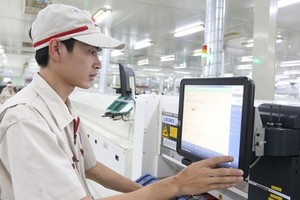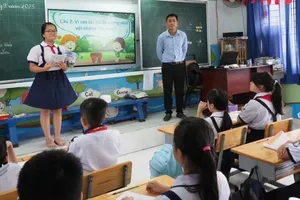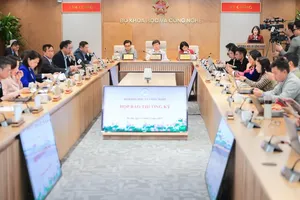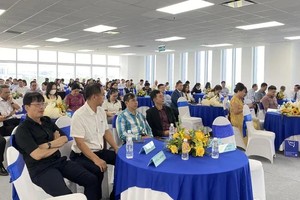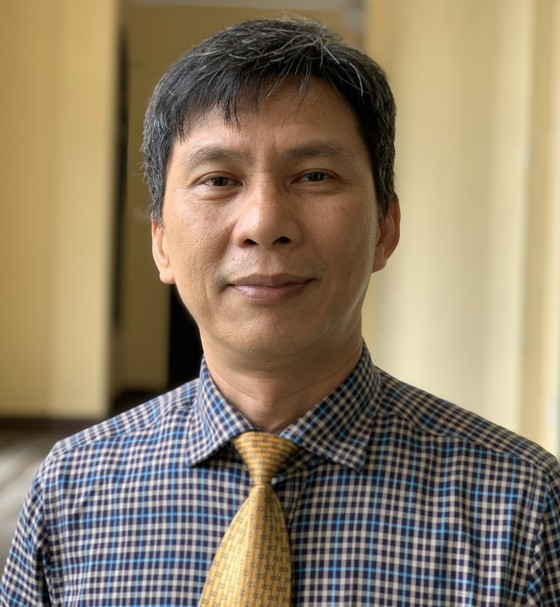 |
Director of the Ho Chi Minh City Department of Science and Technology Nguyen Viet Dung |
The National Assembly’s Resolution 98/2023/QH15 on piloting several mechanisms and policies specific to Ho Chi Minh City’s development has allowed the southern metropolis to decide on wages, salaries, and welfare regimes for scientists in science and technology organizations and especially policies to promote innovative start-up activities.
A reporter from Sai Gon Giai Phong newspaper interviewed Director of the Ho Chi Minh City Department of Science and Technology Nguyen Viet Dung about the issue.
According to Director Dung, statistics has shown that countries around the world spend 5 percent-6 percent of their gross domestic product on science and technology in which state resources only account for a small sum while the rest are social contributions and investment from enterprises. Therefore, the tax exemption and reduction policy from Resolution 98 is very important, encouraging more investment in innovative start-up activities.
The Resolution 98 has several policies to remove difficulties and help mobilize social resources to promote the application of science, technology and innovation. In particular, attracting social resources with tax exemption and reduction policies for individuals and organizations to actively participate in research and development activities and innovation is of great significance.
This policy has a positive impact on science and technology incubators, start-up businesses and especially investment funds and innovative innovation investors. The tax exemption and reduction will help these establishments have more funding sources for investment in innovation activities.
The policy group aims to solve problems related to funding, remuneration, funding support by title of public science and technology facilities as well as innovative research activities to help teams of researchers feel assured to dedicate to their work.
In his opinion, the implementation of the Resolution 98 to attract more high-quality human resources in the field of high technology, contributing to the development in the application of science, technology, and innovation so that HCMC can develop better.
Particularly, the Department of Science and Technology will submit its project on income regime for leadership positions and scientific researchers for the People's Council of Ho Chi Minh City’s approval in the next meeting. According to the Department’s project, a head of a public science and technology organization will receive a salary of from VND60 million to VND120 million a month, and a research project manager of VND60 million a month. This level of remuneration is aimed at increasing income for scientists to attract talented people so that the city metropolis will have teams of top researchers and scientists.
The results of the mid-term implementation of the project to support the development of Ho Chi Minh City's innovative eco-system for the period 2021-2025 show that from 2021 to now, the city has supported the improvement of innovation capacity for 5,063 businesses, reaching 168.8 percent of the target of the 2021-2025 period.
Moreover, the city will also support the incubation and development of 693 projects, reaching 69.3 percent of the target of the period in addition to helping 236 innovative start-ups to access venture capital.
The project 'Supporting the national innovation ecosystem by 2025' in Ho Chi Minh City aims to support 300 innovation projects and 100 innovative enterprises. Of 100 innovative enterprises, the city will help 20 innovation enterprises successfully raise capital from venture capital investors.
At the same time, it will develop 200 innovative entrepreneurship projects and sign cooperation programs with international partners in at least three prestigious efficient innovation ecosystems in the world.
Director Dung emphasized that innovation activities must be based on science and technology to make a breakthrough contributing to the transition to a growth model based on innovation; thus, Ho Chi Minh City needs to invest in service infrastructure including laboratory, design, manufacturing, equipment that can be shared with the community and businesses.
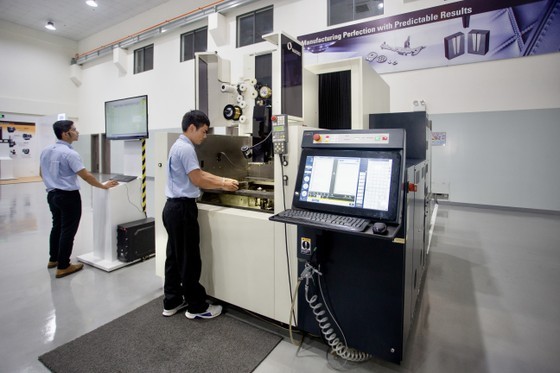 |
Production at an enterprise in the Saigon Hi-Tech Park in HCMC (Illustrative photo: SGGP) |
Furthermore, he said that Ho Chi Minh City should form a science and technology center, and invest more in modern equipment to connect and share equipment with universities, small and medium enterprises to help researchers and universities innovate.
Innovative enterprises need a lot of capital to invest in research until technology and products are complete, so every dollar of capital is very important to businesses. The Resolution 98’s preferential policies and tax exemption will help enterprises in innovation a lot.
Mr. Dung urged to speed up the implementation progress to bring efficiency to enterprises, incubators and innovative start-up activities in the city.
Priority is given to innovation activities such as e-commerce, financial technology, logistics, educational technology, medical and health care, high-tech agriculture, sustainable development, digital conversion and network security.
















